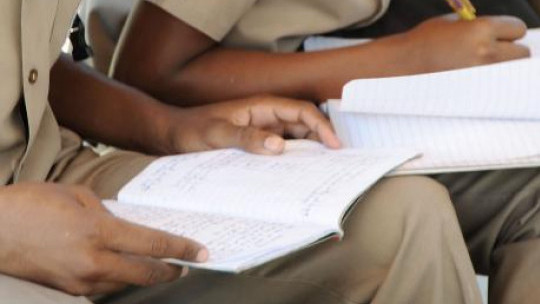.png)
00:00
00:00
00:00
National MICS consultant Jacqueline Montique-Small and Education Minister Fayval Williams
By Racquel Porter
A new report by the Jamaica Multiple Indicator Cluster Survey indicates that Jamaica needs to accelerate steps towards achieving Sustainable Development Goal targets relating to children.
The findings of the 2022 survey have been released to provide policymakers with data to support Jamaica's efforts towards achieving the 2030 Agenda and the National Development Plan.
The survey reveals that the level at which students aged 7-14 are performing in numeracy and reading is worrying.
According to the findings, 38 per cent of Jamaican children in this age cohort have not acquired foundational reading skills while only 50 per cent of them have acquired foundational numeracy skills.
Additionally, among children 15-16 years old, only 82 per cent are attending upper secondary school or higher.
The national target is 95 per cent.
But the survey has also shown significant advances.
Among them, 94 per cent of children aged 2-4 years are developmentally on track, 99 per cent of Jamaica's children are completing primary school and 95 per cent of adolescents aged 17-19 years have completed grade 9.
The Jamaica Multiple Indicator Cluster Survey was conducted in 2022 by the Planning Institute of Jamaica in collaboration with the United Nations Children's Fund, Inter-American Development Bank and the Statistical Institute of Jamaica, as part of the Global MICS Programme.
This is Jamaica's fourth such survey. Prior surveys were conducted in 2000, 2005, and 2011.
The report seeks to ensure Jamaica has the highest quality data for taking action to support the country's children.
Non-attendance
Meanwhile, Education Minister Fayval Williams has acknowledged the need to scale up mechanisms within the ministry to address the non-attendance rate for school-aged children.
The Multiple Indicator Cluster Survey collected data on the percentage of school aged children who do not attend school.
It found that about seven per cent of 5-year-olds are not attending school, while five per cent of 12 to 14-year-old boys are not attending school.
Additionally, 13 per cent of boys aged 15 to 16 years and seven per cent of girls in the same age cohort do not attend school.
"The out-of-school situation, especially at the early childhood and upper secondary school levels requires a gendered approach as it is clear that boys are disproportionately affected," National Multiple Indicator Cluster Survey consultant Jacqueline Montique-Small pointed out.
But how is the education ministry seeking to address the attendance issue?
Minister Williams said there are several initiatives already in place that may need to be scaled up.
"Prior studies indicated to us that major factors causing non-attendance at school has to do with not having lunch money or transportation, especially for those children who live in rural Jamaica. As you know in Kingston [and St. Andrew] children have access to the JUTC bus. Fares are extremely subsidised in the KSA and only recently the Ministry of Finance further reduced fares for travel on the JUTC. But when we look in rural Jamaica, and you look at the fares that parents have to pay to and from school, it is a real burden," she acknowledged.
The survey also found that 94 per cent of children aged 2 to 4 years are on track in relation to health, learning and psychosocial development.
Vaccination levels
As it relates to health, the survey revealed that Jamaica continues to see high levels of vaccination in the first year of life.
Based on the observation of vaccination records and reports from mothers, all children 12 to 23 months old have been vaccinated against Tuberculosis and approximately 89 per cent of infants in the same age group have received the basic antigens in line with Jamaica's Immunization Schedule.
But only 55 per cent of children 2 to 3 years old have received all recommended vaccines.
The national target is 90 per cent.







 All feeds
All feeds







